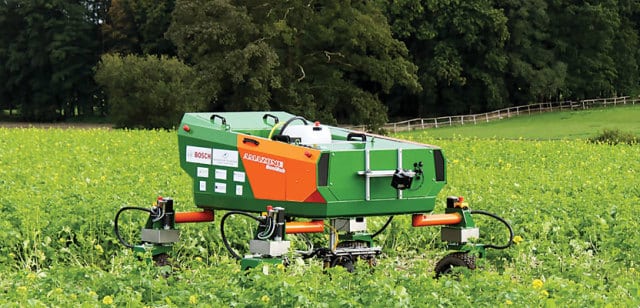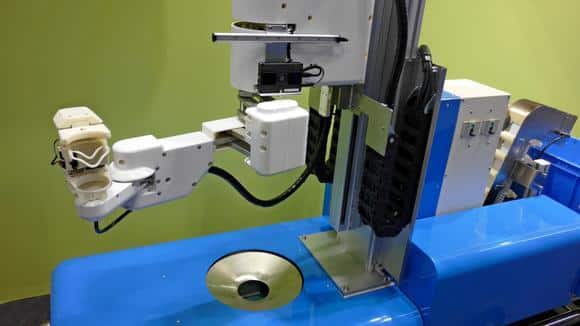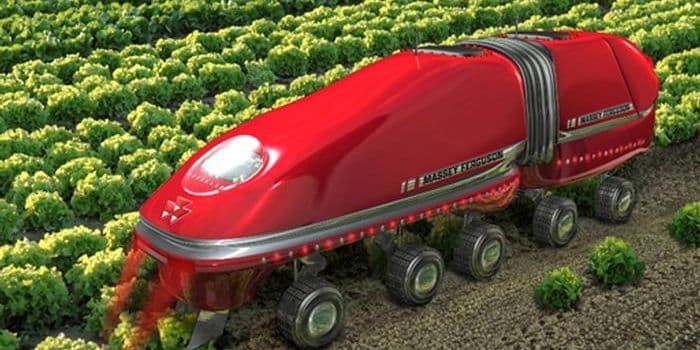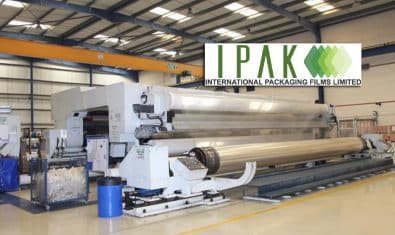We have been hearing about how Pakistan is an agricultural country and most of our economy depends on agricultural output. The same can be said about the rural population which accounts for nearly all of the agricultural production and about 63 percent of the whole population.
Pakistan boasts some of the most impressive numbers when it comes to output and the human resources involved in its agricultural sector. The kicker is that we can do a lot better.
Let me explain why. But first let’s take a look at how Pakistan’s agriculture sector is being utilized currently.
Agriculture in Pakistan
About 113 million people in Pakistan reside in rural areas. These people are also linked with agriculture in Pakistan. Pakistan has a semi-industrialized economy with a well-integrated agriculture sector.
According to Pakistan Bureau of Statistics, 43.5% Pakistan’s labor force is involved in agriculture. The sector contributes a massive 21-25% to the country’s GDP.
Pakistan is among the top ten producers of wheat, cotton, sugarcane, mango, dates and kinnow oranges, and responsible for about 10 percent of the world’s rice trade.
Livestock accounts for 40 percent of the sector and contributes 11 percent to the GDP. Over 35 million people are employed by the livestock sector.
Despite Pakistan being one of the top agricultural countries and continuously improving in its agricultural production, about half of the population is food insecure, according to the World Food Program.
The ever increasing population, struggling water resources, decreasing agricultural labor force due to urban migration, increasing demand for food and cash crops is putting significant burden on the agriculture sector as it has to meet the increasing local and international demands.
This is creating a void in the sector which keeps widening as the demand and supply gap increases.
So how do we tackle this challenge? Read on.
Robot Farming & Rapid Growth
Not so long ago, Transparency Market Research (TMR) released a report, which predicted a noticeable increase in demand for agricultural robots for farming purposes.
As of 2016, the agricultural industry stands at yearly revenue of $1.01 billion is TMR suggests it will grow to at least $5.7 billion by 2024 based on the current annual growth.
The migration of population from traditional agricultural lands is increasing demand for food in such areas which has promoted the need for more work force and precise farming. This is where farm robots come in.

According to TMR, major agricultural robots designed these days can perform singular tasks in the following categories:
- Unmanned Aerial Vehicles (for the spraying of pesticides and agro-chemicals)
- Driverless tractors
- Milking robots
- Automated harvesting machines
- And more miscellaneous tasks
In the long run, these robots can reduce labor force requirement, decrease costs, increase efficiency and boost the agricultural production.
How Pakistan Could Benefit From Farm Robots
Pakistan has 79.61 million hectors of land and more than half of it is cultivable. Yet only 22.07 million hectors are cultivated while the rest is left unused, given the herculean effort required to make it cultivable. Similarly, Pakistan’s urban population has increased by nearly 21 percent since 1998 with increasing food demand. This has resulted in a cut in the agricultural labor force.
With the use of robot farming, the uncultivated land can be brought to use and current production can be maximized through automation and machine learning.

On a similar note, livestock sector can make use of robots to decrease expenses in the long run and increase output. While most of the world is accepting robots for the livestock sector, Pakistan is still working on a manual basis.
Some common robots in livestock and agriculture sector are:
- UAV
- Driverless Tractors
- Milking Robots
- Automated Harvesting Machine
- Egg collectors
- Fruit Pickers
- Harvesting Robots
- Farm Maintenance Robots
Robots can also help in improving the quality and cleanliness of the livestock and cultivation product. For example, robot milk farms are much more safer for health than manual ones.
Added Benefit of Promoting Robot Farming in Pakistan
Being an agri-centric state, Pakistan can also take a lead in robot production during its growth phase. Like Pakistan’s research departments on plant seeds and crop growth, if the government or the private sector funds research on farm robots, Pakistan could end up with a major share of the robot farming industry as well.
Asia and Pacific region is among the top markets for robot farms but lacks competitive players in the market. More robot manufacturers could also help boost adoption of farm robots.
It is evident that the need for farm robots will increase and Pakistan needs robots to increase its agricultural output. Having a linked farming robot industry, with robots designed specifically for countries with conditions like Pakistan, could be an added benefit and boost our GDP by much more.
Limitations of Robot Farming
While robot farming is growing, it isn’t seeing rapid progress. The major factor behind it are the limitations of farm robots. Most robots are limited to a single task and current technology is still some time away from developing robots that could run unmanned farms.
As with all upcoming products, the costs are quite high due to limited global demand and technical expenditure. Once parts become cheaper and are developed on a wider scale, the price will drop and farm robots will see a much wider adoption.
Possible Issues of Robot Farming in Pakistan
In Pakistan’s agriculture sector, Technicians and Associated Professional account for just 0.06 percent of the whole labor force while Plant & Machine Operators and Assemblers are a mere 0.31 percent of the force. This shows that technical expertise is nearly non-existent in Pakistan in this sector.
The major factor here is the lack of consideration of agriculture related jobs and weak education system in Pakistan. More educated people would also mean more technical experts but due to lack of jobs in rural areas, educated and technical personnel, which are already limited, head towards urban areas in search of better jobs. Robot farms would need technical personnel to look after the working of the equipment and that is an issue amongst Pakistan’s less educated farmers.
There’s also the factor of limited funds as far as small and medium scale farmers are concerned. Such farmers make up a big chunk of the total output but most of them cannot even afford tractors. As of 2004, Pakistan only had 401,000 tractors in the whole country, and considering the slow growth over the past decades, the number is still estimated to be around 600,000 right now.
Pakistanis still haven’t adopted the machinery, which is common amongst the farmers in the west, so adoption of farm robots would need some wide-scale awareness campaigns, government funding and promotion of tech in agriculture.
Final Words
Pakistan, being one of the top producers of the most needed agricultural products, is slowly starting to lag behind the rest of the world in terms of efficiency. Steps need to be taken in order to promote technology in Pakistan’s agriculture sector.
Use of latest machinery and automated robots can help raise living standards of farmers and farm owners. The government and the private sector needs to assess the huge potential of technical implementation in Pakistan’s agriculture.
Not only will it speed up product harvesting and in turn prevent produce from rotting before reaching its destination, it will also improve produce handling resulting in better quality items. In short, it means that use of technology could mean more income for farmers, more taxes and foreign reserves for the government.






















Sorry, we cannot mechanize our farms due to small land holdings which is further reducing as our population rate is still too high. And who need robots when we have plenty of cheap labor available.
Agree Khany ko mily na Robot ly aao Bhai Hosh k Nakhun lo Aap Pro Phikkyy :/
Cheap labour is in cities, not in villages. What would require 20 men and 2 weeks can be done by 5 men in 1 day. Who benefits? The farmer and the engineers who are sitting around useless. Pakistan benefits, more money more inductry.
Read the whole article to understand all the points
Cheap labor is available in all parts of the country. Cities are getting cheap labor from surrounding villages due to lack of jobs there.
Simply visit a dairy farm near you and ask them if they have a hard time keeping workers.
Go to villages and you’ll see that even a small scale farmer and his whole family barely manage their crop due to lack of machinery and robots.
Technology is not our enemy. It can be used to improve our production. Robots arent human replacements.
Saying that self driving cars will eliminate driver jobs or using cars would hurt charriots makes little sense. This simply creates more jobs though those are more technical.
Aadil:
I believe you need to study why robots were developed, and buy whom, and fro what purpose. They were develop in the developed economies where cost of labor is extremely high and minimum wages apply. A plumber could actually be making in one month the same money as a PhD in a university.
That is why you will see that these countries encourage immigration of blue-color workers, not educated people — as they already have plenty of those in their countries.
Second the entities which promote these are all commercial entities — the “efficiency” you are talking about is indeed very measurable, and indeed gives more profits to owners. However a “collateral damage” is high unemployment amongst the poor and low-educated masses.
Who then need to be re-trained or re-educated in other areas (like services) . . . which you will see happens in the western world. . .that the contribution of GDP in their economies is dominated by services sector.
In any case as a welfare state, our objectives are not just to be most efficient, but to provide jobs to young people entering the job market — both educated and un/semi-educated.
And it has now been proven that robots take away the blue collar jobs across the world.
Hence, while I really appreciate the many benefits to owners of the companies, farms, corporations. . . I also believe we need to care for our less fortunate people as well.
yeah, totally agree with Patriot and adding to it ; I think the writer has to understand our rural culture and farming rituals. Its very easy to get fascinated by the high efficiency of robots and profit margins. in many village the labor is very cheap- atleast less than the cities- and in some villages you dont have to pay the labor to work on the field, you just have to give them a small share from your yield and they will work for you for free . This is one of the farming traditions in rural areas. Also you just cant talk about replacing humans with robots without devising a plan for alternative employment of those who are being replaced by robots. The author should really show both sides of the picture here.
Further , the idea of use of robotics is promoted by greedy corporations who HAVE to keep their investors HAPPY by making more profit by reducing costs. So its more damage to the replaced worker until compensated for. And Big corps really dont give much shit to the compensation part.
PEACE
Please read my response to Patriot. And I fail to understand why Pakistanis think that machines/robots replace humans.
If that is the case, cars, buses, factories, TVs, internet everything should be banned.
If you read the article, it says that the jobless graduates in Pakistan will get jobs in the robots industry while the illiterate will take care of the blue collar jobs who have otherwise already left villages.
You need to go ot villages to understand. Simply sitting in cities and assuming things won’t get you answers. Ask dairy farmers, they dont get men even if they pay them what the workers want. Villages have such low population density that there’s hardly anyone around for other’s fields. I have seen this first hand and have asked farm owners. They would be glad if the government could help them with tech.
Aadil:
Please read the following Pro Pakistani article:
https://propakistani.pk/2017/02/28/robots-replace-two-thirds-workers-developing-world-un/
It’s not about what YOU think, but facts — please do not become Trump, and try to avoid quoting “alternative truths”. . .
Actually, I used to work for one of the largest agriculture companies in Pakistan, and this was my job, so I hope you respect my knowledge on the subject. My practical experience in the field of years with REAL farmers.
I have travelled to remotest villages from Bagh to Gwadar — so I am speaking from experience of having gone to those places — the question is have YOU?
Next we are not talking about banning anything fro city use, but the use of robots in the agricultural area, please do not quote completely out of context.
Further the farmers you have probably asked (please feel free to contradict me) are ones who have 5,000 acres of land or more, and can afford robots worth crores of rupees — and yes I have visited those as well.
But a majority of the REAL farmers, are small farmers, with less than 100 acres of land — who, by number are around 80% of farmers in Pakistan — and they barely have enough to save up fro the seeds of the next crop, what to say of robots.
Hope this clarifies.
Please do not take things personally dear, and become defensive about a wrong statement you have made, its okay, we all learn.
As I mentioned in the other comment, you confuse factory machinery and robots with the rest of the tech world. Having advanced tractors or even self driving tractors wont hurt the farmers, it will help them. The real thing here is that the govt needs to take interest, offer subsidies or even offer machinery and bots on rent. Just because there are farmers who dont need help doesnt mean those dont exist who do need help.
Since you say you are my grandfather’s age, I assume you must have retired at least 20 years ago (sorry if am wrong). Pakistan’s rural population has decreased by around 10 percent in the past 15-odd years. Even those who do live there, now work in cities.
I can cite this from my own village where you would rarely see a “jawan” during work season. Everyone has left for cities. Same for the villages in the whole region. Punjabi farmers arent as poor as you seem to think. Times have changed.
Visit milk farms near your city these days, ask them if they have any issues finding people to take care of their buffaloes and cows.
I can understand where you are coming from. The situation has changed since then. If farmers could buy or rent tractors and similar equipment, they would do it gladly.
I understand where you are coming from. But you are assuming that robots or machines are only built to replace manual labor. But that is not the case.
Cars are machines, self-driving cars are robots. Vehicles being sent to other planets are robots. Machines are used for many purposes other than human replacement.
Consider this. Half of our cultivable land is being wasted due to several reasons including lack of farmers. What if Pakistan was to use those robots for that and double its agri output?
Consider this, Pakistan works to become a leading robot maker in the region. Educated masses and experienced farmers get employed by the robot manufacturers in Pakistan. Economy gets a boost, reserves boost, unemployment decreases.
Consider this too that the educated masses who are roaming around would now be employed as they get utilised for repairs and can educated villagers can remain close to their homes as repairmen.
You are assuming that Pakistan has enough of a workforce for agriculture but that is not the case. Just visit a dairy farm near you and you will hear that they dont have enough workers.
Same goes for farmers around the country who do need help when they can get it. Tractors and other machinery will only help them so they can raise their living standard and do less exhausting work.
I am fully with you, if we can become a leading maker of robots in even the world — did you know that the silica in our Thar desert is some of the best quality in the world? Why is that important you may wonder? Well every single silicon chip manufactured in the world is made by silica — and the better the quality the lower the wastage in poor quality — so now my question — microchips have been manufactured now for 3 decades — silica — or in common language SAND — is literally FREE — did we become the leading chip maker in the world?
My dear boy, (being your grandpa’s age I hope can take the liberty of calling you that) — you need to understand that wishful thinking does not get a nation anywhere — resolve and concrete action does.
Do you think ghaddar leaders whose families have opposed the very creation of Pakistan since before it was created, and who now are incharge of the country will EVER let Pakistan prosper — robots, microchips or even Halal beef or chicken?
No. . . .
Again eth dairy farms you are talking about and the complains you get are because the large farms want to employ people for “peanuts” money — do you think farmers are entitled to “minimum wages” — the real “Kammi” or “mazaara” — I am not talking about even small owners, I am talking about the labor.
You are very gravely and sadly mistaken if you think that there is unavailability of labor — there is availability — but not to work for free for the landlords.
And last I agree 100% with you on using Robots by large farmers, if they can employ those to develop the empty land which they are not cultivating, wihtou having to fire a single poor laborer — however that land is not being cultivated not because of the labor — but because of soil salinity and costs of recovering that and making it healthy enough to grow crops on.
Again I am talking from practical experience my dear.
You gave a very good example of silica but the issue is silicon chip makers are private companies. Of course the government could have promoted and helped international companies come here and setup plants like they did in India, but like you said these people are incapable.
There is no wishful thinking here. It is all about the potential, which is present, but not being utilised rather Pakistan is missing out on a growing industry where Pakistan could be amongst the front runners by jumping in first.
I am afraid I will have to disagree with what you are saying about labour. You are confusing feudals with the rest of the land owners. A big majority of land is owned by small or medium sized farmers.
Believe me those feudals would never complain about labour or such. Why? Because they dont even know how stuff is working for them. All they are concerned with is the output and the money. They dont even know whats happening in the fields. You may have more experience in life, but I am telling you this from my personal experience while talking with a few feudal landlords.
The complaints I mentioned were from small scale farmers. The milk ones and the rest too. Whether its rural areas around my city or my village, I have heard of the same issue everywhere that they can’t find people to work for them. You dont understand that due to urban migartion, agricultural work force is rapidly decreasing.
Technology is there to help us. You keep mistaking factory automotive machinery and robots with the rest of the tech world. I quote the car example again, has it helped us be more productive or has it forced people into unemployment. Same for tractors, have they helped us or not.
These are simple helping tools which can make us productive.
I am afraid you are wrong about the saline land as well. I have only mentioned the land which can be cultivated not the one which can be rehabilitated. Though that can be done too.
Yahan pa log thoray hain jo machines use karain …………. Q bechaeon ka rozgar cheen rahay ho
Gaon ja k dekhain thoray hi hain.
Adhi cultivable zameen baghair waja k to nahi weeran parhi Pakistan ki
ProPK :
Waisay BeRozGari Hai :
Kisaan Bechara Mehnat Kar Rahai Hai :
Us K Bhi Khilaf Sazaash Kar Rahy Ho :
Hum Mehannti Log Hai :
We cannot depended up on Machine :
Aaamir Bhai take aciton & remove this artilce :
Yai article kisaanon k liye hi hai ta k un ka faeda ho sakay. Wo kam mehnat sai zyada kama sakain apni zameen ka zyada sai zyada faeda utha sakain
Simple law of diminishing :
10 Log Ki Jagah 1 Operator :
Faida Owner Ko Hoga Employee Ko Nahi !
har chez k kuch na kuch faiday aur nuqsan hotay hen…
wese pakistan main machinery mehngi aur labour sasti he…
thats why hum isko … ni la sktay… warna.. technology to… help hi krti he.. insan ki
Ha ye to hai : But is tarha ki techology se kisaan ko nuqsaan hoga
Or goverment subsdi or instalment allow karti hai tech pe
You understand the point. Others think machines replace humans
Aap yai dekho k 10 log bhi to nahi na mil rahay. 10 ka kaam 4 log kar rahay hain. Baqi yai kaam karna hi nahi chahtay aur chehron main ja rahay hain.
Wohi log robots banayen machines banayen jo agriculture main kam nahi karna chahtay. Win Win for all
Worth reading article. Thanks for sharing.
A good article to show the latest dimension. But sorry to say this is just a kind of MUMMY DADDY article on Agriculture. Ground realities are much different, and totally ignored in this article.
Mummy Daddy is just a joke. Real thing is Pakistanis never want to improve anything.
Do you know how china progressed? By relying on the motto of their leader, “Rely on your own resources”. They did not import tools, they did not replace men with machines. You see how they are progressing.
Which China are you talking about? The China on Earth uses the latest machinery and technology to maximise their potential.
Sorry, but Pakistanis have gone way ahead in corruption so these things don’t matter to them.
This is only one side of the picture, Pakistan is missing hell of a lot opportunities